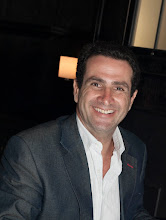(1920-1993), Italian film director. Born and brought up in the small seaside resort of Rimini on the Adriatic Coast, Fellini moved to Rome in 1939 where he made a living as a journalist and caricaturist. Entering the Italian film industry as a scriptwriter and assistant director in the early years of Neo-Realism, he was co-director (with Alberto Lattuada) on Luci del Varietà (1951; Variety Lights) before progressing to sole direction with the comedy Lo Sceicco Bianco (The White Sheik) in 1952. International recognition came with La Strada (1954) and The Nights of Cabiria (1957), both of which starred his wife, Giulietta Masina, as (respectively) a waif-like circus performer brutalized by the troupe's leader (Anthony Quinn) and a naive but spunky prostitute. The huge commercial success of La Dolce Vita (1960) gave him the freedom to make Otto e Mezzo (1963; 8½), a film about the creative dilemmas of a film director, still regarded by many as his masterpiece.
Having thoroughly shaken off the legacy of Neo-Realism, Fellini began a series of highly personal explorations of his experiences and fantasies. Fellini's Roma (1972) was a satire on his adoptive home, while in Amarcord (1973) he returned to his adolescence in his native Rimini. Nostalgia for the remembered past and an increasing distaste for aspects of the modern world (from the women's movement to a culture dominated by television) provide the impetus for his later films, including Prova d'Orchestra (1979; The Orchestra Rehearsal), La Città delle Donne (1980; City of Women), La Nave Va (1983; And the Ship Sails On), Ginger e Fred (1985), and Intervista (1987), but his creativity and his ability to merge personal obsession with reflections on the nature of cinema remained undiminished
Book your Accommodation In Italy
Thursday, October 18, 2007
Federico Fellini
Posted by
Italian Food
at
7:11 AM
![]()
Labels: Federico Fellini
Subscribe to:
Post Comments (Atom)



No comments:
Post a Comment